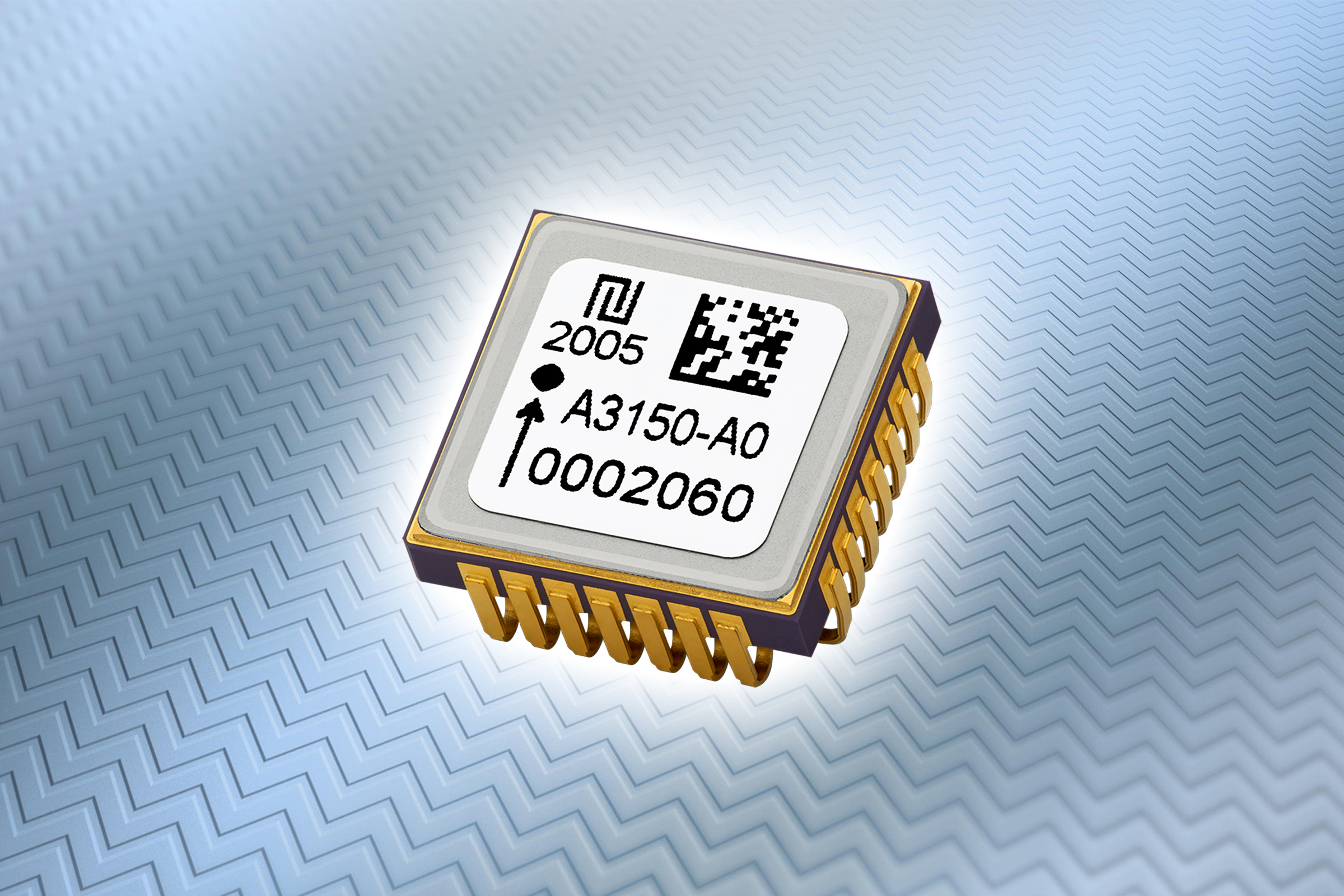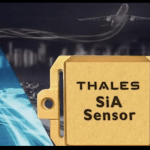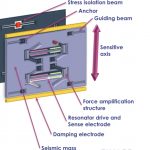The Tronics AXO315, a miniature high performance 1-axis closed-loop MEMS accelerometer from TDK Corporation, has a 24-bit digital SPI interface and SMD package that reaches quartz sensors performances and eases integration. The new force-rebalance accelerometer delivers a one-year composite bias repeatability of 1 mg and composite scale factor repeatability of 600 ppm under severe temperature and vibration conditions common in industrial, land, railway, naval and construction applications.
Its characteristics enable significant reduction in size, weight and cost of materials for industrial motion control units, inertial measurement units (IMU)s and inertial navigation systems (INSs). AXO315 is a ±14 g range, in-plane linear accelerometer, developed for high precision and reliability in the most challenging environments. It achieves a 1 mg composite bias repeatability over one year at temperatures ranging from -55 °C to +105 °C, and 4 g vibrations with an outstanding vibration rejection.
Performance is augmented by its Allan variance characteristics, with a bias instability of 4 μg, a velocity random walk of 0.006 m/s/√h, and very low noise of 15 μg/√Hz, thus enabling high resolution and low error. The new AXO315 is free from dual-use export control according to Annex 1 of Council Regulation (EC) No 428/2009. AXO315 delivers an 80% gain in temperature stability compared to Tronics’ previous accelerometer generation AXO215.
It comes in a lightweight 1.4 g hermetic SMD J-lead ceramic package (12 x 12 x 5 mm), enabling low-cost assembly and reliability on PCB, even in fast-changing temperature conditions. With its performance and robustness, it is well suited for applications such as servo inclinometers and dynamic inclinometers in industrial motion control units, IMUs and INS for GNSS-aided positioning, and navigation of manned and unmanned ground vehicles and trains.
The AXO315 accelerometers are manufactured, tested and calibrated at Tronics Microsystems’ facility in Grenoble, France. Evaluation of the sensors can also be made through an Arduino-based evaluation kit that is specifically designed to provide developers with improved testing functionalities such as output reading and recording, recalibration and digital self-tests.






